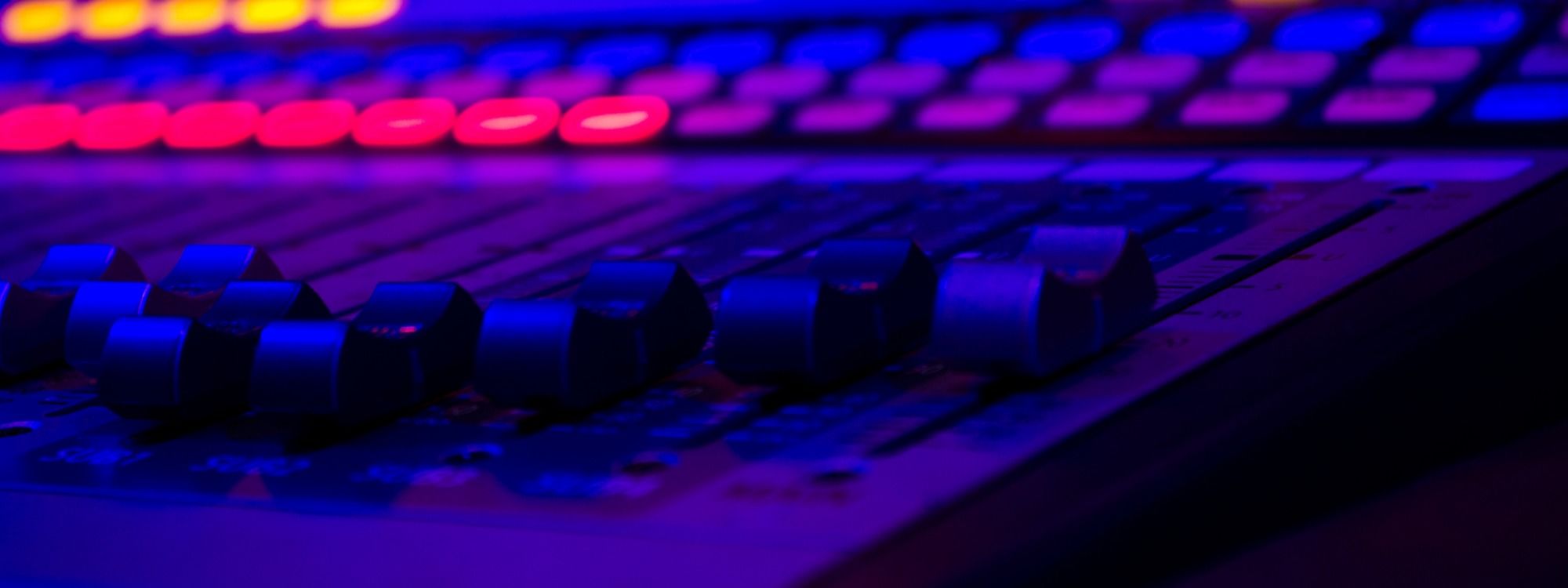Music Technology BTEC National Diploma Course Outline
Advanced Level 3
Awarding Body: Pearson
This course is subject to Government approval and funding (an alternative course will be available).
Study Music Technology
Music Technology is a creative and innovative subject which arms you with the skills needed to arrange, compose, produce and record music. On this course you will gain an understanding of a wide range of popular musical styles, and will learn how to use technology successfully in the field of contemporary popular music production.
This course has links to the music industry and learners will have the opportunities to work on projects within an industry related context.
The General entry requirements for Advanced Vocational Programme courses are five GCSEs grades 9-4 and above, including English Language and Maths, and a grade 4 or MM and above in Extended Certificate Level 2 in the subject, Music.
The content of the qualification meets the knowledge, understanding and skills that underpin the role of the music technician. The course is split into a number of units that combine a selection of both practical and contextual based topics related to music technology.
Students will study five mandatory units, which include the following topics:
- Studio recording techniques
- Digital Audio Workstation (DAW) production
- Live sound
- Music and sound for media
- Music technology in context
A further five optional units are then studied, designed to support progression to relevant occupational areas, and to a range of sector-related courses in higher education. They cover content areas such as:
• Creative synthesis and sampling
• Music technology in performance
• Mixing and mastering techniques
• Working and developing as a production team
All learners taking this qualification will be required to have a significant amount of meaningful engagement with sector employers as part of their course, for example, through work experience in the sector and through attending lectures from visiting employers.
Full list of units:
- Unit 1: Live Sound
- Unit 2: Studio Recording Techniques
- Unit 3: Music and Sound for Media
- Unit 5: Music Technology in Context
- Unit 6: DAW Production
- Unit 8: Creative Synthesis and Sampling
- Unit 10: Remixing and Reworking
- Unit 12: Music Technology in Performance
- Unit 13: Mixing and Mastering Techniques
- Unit 15: Music Investigation
- Unit 17: Music Technology and Musicianship
- Unit 18: Working and Developing as a Production Team
You will be assessed on the completion of 10 units in total, 5 mandatory and 5 optional. At the conclusion of the qualification all unit grades are combined to achieve a final overall mark. The completed Diploma is equivalent to 2 A Levels. The qualifications are graded Pass, Merit, and Distinction.
There will be a mixture of theoretical and practical assessments throughout the course and you will work on assignments for each unit of the course. You will be assessed at the end of each assignment on both your written work and practical work as per the specific criteria for each unit or project.
The main purpose of this qualification is to prepare learners for working in the music technology sector, particularly as musicians, arts officers, producers and directors, photographers and audio-visual, and broadcasting equipment operators. This qualification enables learners to develop a core of knowledge around the music technology industry and the use of recording and technical equipment. It provides the breadth and practical application of music technology learning which will prepare learners for a number of job roles in the sector, either in its own right or when taken alongside an additional complementary qualification. Learners with this qualification could progress to the following job roles:
• Studio assistant
• Assistant sound designer
• Trainee sound engineer
• Producer/artist
This program supports progression either directly to employment in the music technology sector or to higher education courses in music technology.
"I enjoy studying Music Technology at St Charles. It's given me the ability to express myself through my creation of music, as well as collaborating with other artists and musicians on projects. I would recommend the Music Department to others as it's a great way to build your musical skill both in production and in broadening your music taste, sharing your ideas with others and essentially creating works of art."
“Learned all the previously daunting technical aspects of music production I wanted to learn and I now feel much more confident in my ability to record and mix audio. Thanks!”
“This is probably one of the best courses I have ever taken. A broad range of essential topics was covered thoroughly and I really feel that I learnt a lot about hardware, software, sound engineering, and production skills. I also learnt a lot of terminology, which I was finding very confusing during my efforts to teach myself, and feel like I had a good foundation upon which to continue my learning and improve my music production skills.”
Web Article: https://www.waves.com/six-stages-of-music-production
Mr M Sewell. Lead teacher mse@stcharles.ac.uk
A music industry professional with a number of years working in the industry as a producer, remixer and teacher.
Mr A Jones. ajo@stcharles.ac.uk
Plus technical and production support
You will also be taught and trained by a range of visiting lecturers, speakers and industry professionals.
